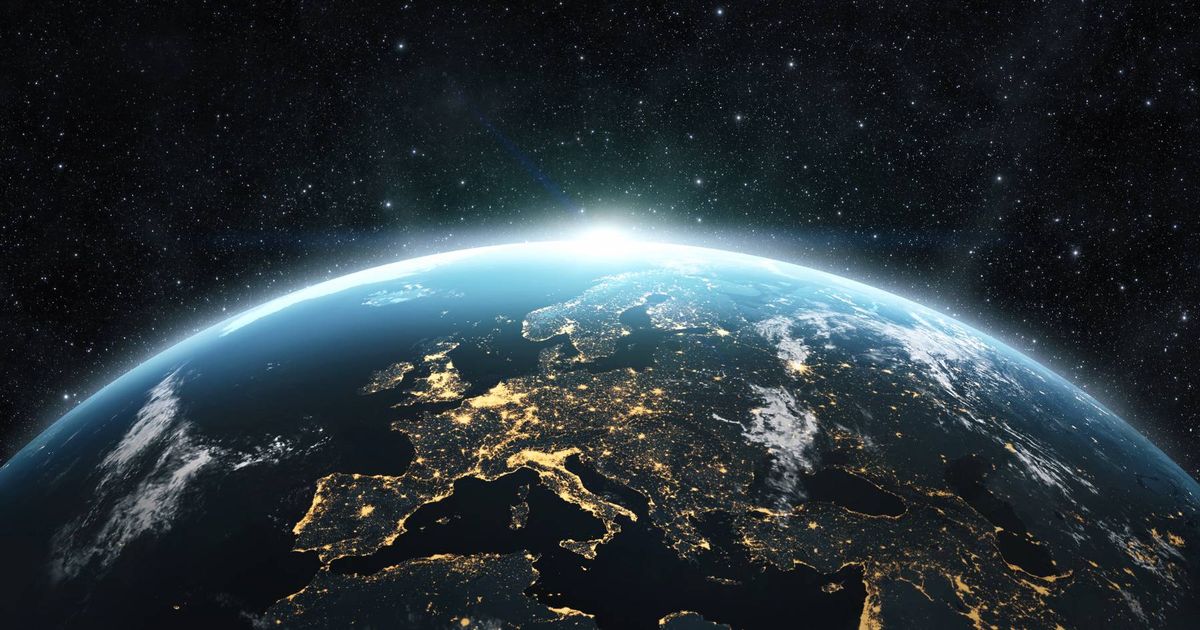Science
Harvard Scientist Claims Mathematical Proof of God’s Existence

A breakthrough claim by Dr. Willie Soon, an astrophysicist from Harvard University, has stirred significant discussion on social media. He asserts he has provided mathematical proof of a higher power, suggesting the universe’s intricate design indicates the existence of God.
In a recent appearance on The Tucker Carlson Network, Dr. Soon discussed the “fine-tuning argument.” This theory posits that the universe’s physical conditions are precisely calibrated to allow for life, suggesting that such precision is too improbable to have arisen by mere chance. This concept echoes thoughts first articulated in 1963 by Cambridge University physicist Paul Dirac, who emphasized the mathematical elegance underlying the laws of nature.
Dirac stated, “It seems to be one of the fundamental features of nature that fundamental physical laws are described in terms of a mathematical theory of great beauty and power.” He proposed that this beauty points to a superior designer, implying that “God is a mathematician of a very high order.”
Dr. Soon aligns with Dirac’s assertions, expressing on the program that “there are so many examples of the ever-present forces that allow us to illuminate our lives.” He believes these forces reflect divine intention, allowing humanity to pursue enlightenment and purpose.
The fine-tuning argument compares the universe to a finely crafted timepiece; finding such a device suggests the existence of a clockmaker. Similarly, the complexity observed in the universe implies the presence of an intelligent creator.
Despite Dr. Soon’s claims, the scientific community remains divided. Critics often raise two primary counter-arguments against the fine-tuning theory. The first highlights humanity’s limited understanding of the universe. While humans are carbon-based organisms, it is conceivable that life could exist in alternate forms elsewhere in the cosmos, potentially under different physical laws.
The second counter-argument revolves around the concept of chance. Critics argue that improbable events occur regularly throughout nature. Thus, even if the odds of our universe’s existence seem slim, the fact that we exist suggests that such improbable outcomes can and do happen.
Dr. Soon’s assertion has reignited the age-old debate between science and religion, capturing the interest of both fields. As discussions surrounding the implications of his findings continue, many are left contemplating the intersections between mathematics, existence, and belief.
-

 Top Stories3 months ago
Top Stories3 months agoTributes Surge for 9-Year-Old Leon Briody After Cancer Battle
-

 Entertainment4 months ago
Entertainment4 months agoAimee Osbourne Joins Family for Emotional Tribute to Ozzy
-

 Politics4 months ago
Politics4 months agoDanny Healy-Rae Considers Complaint After Altercation with Garda
-

 Top Stories4 months ago
Top Stories4 months agoIreland Enjoys Summer Heat as Hurricane Erin Approaches Atlantic
-

 World5 months ago
World5 months agoHawaii Commemorates 80 Years Since Hiroshima Bombing with Ceremony
-

 Top Stories3 months ago
Top Stories3 months agoNewcastle West Woman Patricia Foley Found Safe After Urgent Search
-

 Top Stories5 months ago
Top Stories5 months agoFianna Fáil TDs Urgently Consider Maire Geoghegan-Quinn for Presidency
-

 World5 months ago
World5 months agoCouple Convicted of Murdering Two-Year-Old Grandson in Wales
-

 World5 months ago
World5 months agoGaza Aid Distribution Tragedy: 20 Killed Amid Ongoing Violence
-

 World5 months ago
World5 months agoAristocrat Constance Marten and Partner Convicted of Infant Murder
-

 Top Stories4 months ago
Top Stories4 months agoClimbing Errigal: A Must-Do Summer Adventure in Donegal
-

 Top Stories4 months ago
Top Stories4 months agoHike Donegal’s Errigal Mountain NOW for Unforgettable Summer Views









